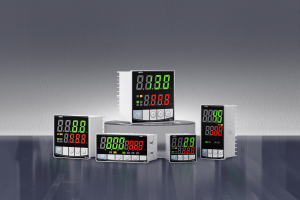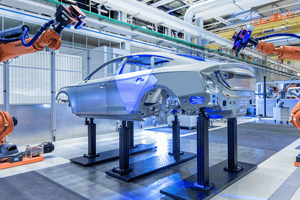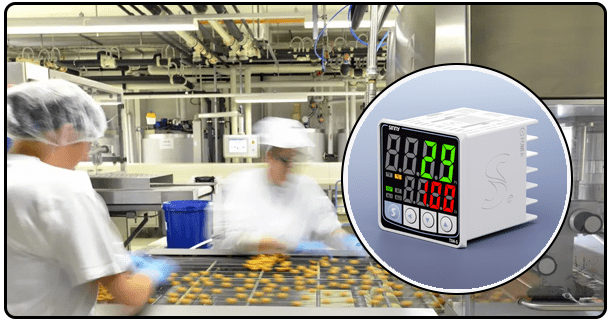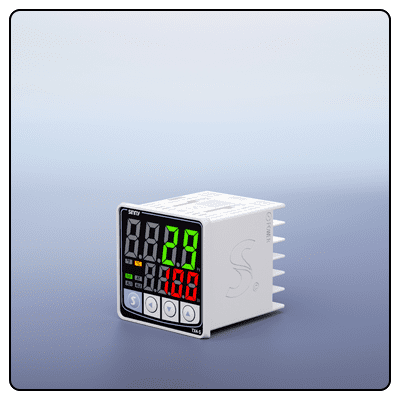Explore the Importance of PID Temperature Control in Manufacturing
Discover the vital role PID temperature regulation plays in manufacturing. Understand how precise temperature regulation enhances process efficiency, product quality and safety - plus uncover its many advantages, applications and best practices! Check out our in-depth analysis on these controllers here!
1. Introduction
Accurate temperature regulation in modern manufacturing environments is of critical importance. From pharmaceutical production, food service operations and high tech materials manufacturing processes requiring temperature regulated accurately can make or break processes. PID (Proportional-Integral-Derivative) temperature controls come to the rescue in these instances.
PID controllers are complex devices designed to maintain the desired temperature by continuously adjusting control output. In this article we examine their importance in manufacturing environments - its effects on process efficiency, product quality, and safety are explored here.
2. Understanding PID Temperature Control
Definition and Components
PID temperature control refers to an approach which uses an automatic feedback loop mechanism in order to maintain an ideal temperature environment. It consists of three main parts.
Proportional (P): This component measures any difference between desired setpoint and process value and measures actual process values to adjust output proportionally. Integral (I): This component sums past errors to eliminate residual steady-state error.
Derivative (D): This component predicts future errors based on their rate of change, helping prevent overshooting and oscillations from taking place.
PID Controllers Work
PID controllers operate by continuously calculating error values that exist between an ideal setpoint and measured process variables, and actual measurements. They then apply correction terms that correspond with proportional, integral, and derivative terms adapted specifically to your process requirements - thus creating a feedback loop which keeps process variables such as temperature within their setpoint range for accurate control.
3. Advantages of PID Control
Some key benefits associated with PID control may be:
Precision: PID controllers are widely acclaimed for their ability to maintain stable temperatures at precisely set points.
Stability: By eliminating oscillations and maintaining steady-state operation, PID controllers ensure stable processes.
Adaptability: PID controllers can be fine-tuned to suit different process requirements, providing flexibility.
Experience in PID Temperature Control Applications: Real World Applications of PID Temperature Controller
4. Case Studies in Manufacturing
PID controllers have become an indispensable part of industrial operations across various manufacturing sectors. Chemical plants use PID temperature controllers extensively in their chemical reactions process for accurate results and increased process efficiencies and product quality by employing PID temperature controls in its temperature management processes.
Pharmaceutical producers rely on maintaining accurate temperatures during production processes in order to guarantee drug efficacy and safety, while in food processing PID controllers provide essential help with managing required temperatures for cooking, storage and packaging, guaranteeing food quality and safety.
User Testimonials
Industry Professionals Consistently Praise PID Controllers
PID controllers have earned praise among industry professionals due to their reliability and performance, with users reporting significant enhancements in manufacturing processes due to enhanced control precision and reduced downtime as major benefits of using PID controllers.
Mastery of PID Controller Technical Specifications It is crucial for successful use of PID controllers that you understand their technical specifications in terms of usage:
Sensor Types: Different temperature sensing technologies such as thermocouples and RTDs can accurately measure temperatures.
Response Time: PID controllers respond quickly to changes in temperature in order to maintain control.
Accuracy: Accurate temperature monitoring ensures the process remains within its desired temperature range, and technical guidelines provide comprehensive insights into these specifications to assist users with choosing PID controllers that best match their requirements.
5. Implementation Strategies
Successful implementation of PID controllers involves several steps.
System Evaluation: Understand the specific requirements for manufacturing process. Chose an appropriate PID controller which matches up with process conditions. Tweak PID parameters (P, I and D).
Tuning: Fine tune PID parameters to obtain optimal performance results.
Insights provide invaluable strategies for successful implementation of PID controllers and ensure they produce desired outcomes.
Authoritativeness: Industry Standards and Best Practices (ISBPs).
Conformance With Industry Standards
Compliance with industry standards is integral for maintaining reliable manufacturing processes. Organizations provide guidelines and temperature controls in their workplace environments; meeting these guidelines not only ensures safety but also contributes to building credibility in manufacturing operations.
Best Practices for Maintenance and Calibration
for PID Controllers Maintenance and calibration are both key elements to long-term performance of a PID controller, so regular checks, calibration, and regular servicing is required for optimal functionality. Best practices should include:
Routine Inspections: Conduct regular visual inspections to detect any potential problems. Calibration: Periodically calibrate sensors and controllers to maintain accuracy.
Documentation: Maintain records detailing maintenance and calibration activities.
Maintenance protocols provide an essential guideline for keeping PID controllers operating optimally, guaranteeing consistent performance over time.
Trustworthiness: Ensuring Reliability and Safety
6. Safety Protocols
Manufacturing safety is of utmost importance and PID temperature control plays an essential part in protecting workers by preventing overheating and maintaining stable process conditions. According to safety guidelines, robust safety protocols - emergency shutdown procedures and alarm systems - must be put in place in order to mitigate risks effectively.
Quality Assurance
Maintaining consistent product quality is one of the key goals in manufacturing, and PID controllers help achieve it by maintaining precise temperature regulation - an essential requirement in processes like chemical reactions, food manufacturing and pharmaceutical manufacturing. Quality assurance practices place special importance on their use as they help guarantee products meet specifications and standards as required for commercial production.
7. Conclusion
PID temperature controllers have long been considered indispensable tools in manufacturing environments due to their precision, stability, and adaptability. Assuring process efficiency, product quality, and safety depends heavily on these controls; by understanding technical details while adhering to industry standards manufacturers can maximize PID controller potential and capitalize on all their abilities.
- How to Fine-Tune Your PID Temperature Controller Settings
- Best Practices for Using PID Temperature Controllers in Chemical Processing























